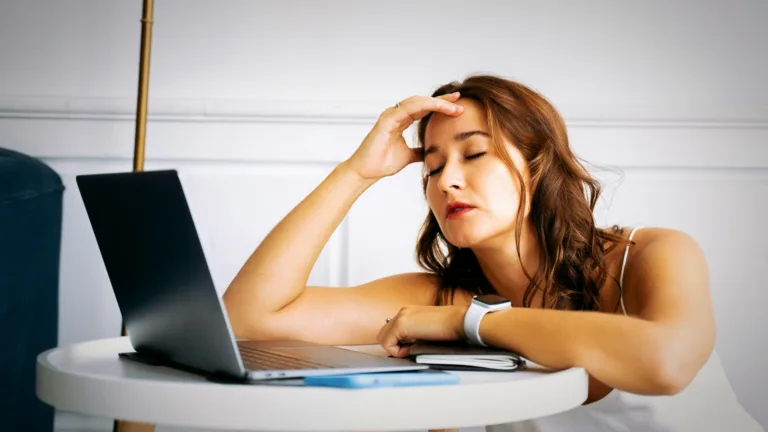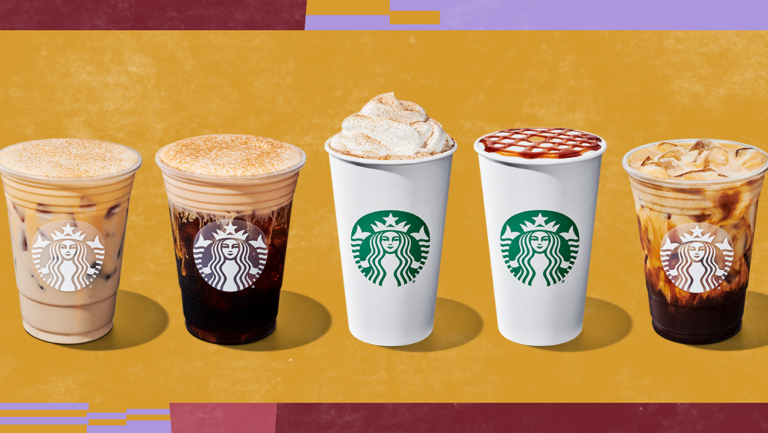The Surprising Power of Dance: Why Exercise Outperforms Medications in Treating Depression

The Power of Movement in Mental Health
Recent research has brought new insights into treating depression, revealing a surprising twist—exercise, especially dance, has been shown to be significantly more effective than taking selective serotonin reuptake inhibitors (SSRIs), a common class of antidepressant medications. If you’ve been prescribed medication without exploring other potential solutions, this new study might just give you reason to reconsider your treatment plan.
Published in the BMJ, a landmark study involving over 14,000 participants explored the effects of various forms of physical activity on depression. It highlighted that not only does exercise improve mental health, but dancing in particular emerged as the most effective exercise for alleviating symptoms of depression.
Let’s dive deeper into the study and what it means for individuals seeking alternatives to traditional treatments.
The Study: What the Research Reveals
The groundbreaking study analyzed 218 individual research studies, encompassing more than 14,000 participants worldwide. The researchers set out to compare the effectiveness of different physical activities, such as walking, jogging, yoga, strength training, and, notably, dancing. The findings were staggering: dancing outperformed all other activities, including medications, in treating depression symptoms.
How significant were the results?
The researchers used a scale to measure the effect size, where:
- Small effect: 0.2 to <0.5
- Medium effect: 0.5 to <0.8
- Large effect: 0.8+
Dancing scored an impressive 0.96, which is a 50% greater effect than the next best activity, which was strength training. On the other hand, SSRIs (selective serotonin reuptake inhibitors) had a modest effect size of just 0.26, barely making the cut for “clinically important benefits.” This stark contrast shows just how powerful dance is as a treatment for depression when compared to conventional medications.
If you’re looking for ways to boost your mood and mental well-being, consider the added benefits of incorporating dance into your routine. You might be surprised at how much of a positive impact it can have on your mental health!

Why Does Dance Work So Well?
The question remains—why does dance, in particular, seem to outperform other forms of exercise when it comes to depression treatment? Experts believe it’s the combination of physical activity, creativity, and emotional expression that makes dancing so effective. Here are some key reasons why dance stands out:
- Movement + Emotion
Unlike more structured forms of exercise, such as strength training or running, dance allows you to express emotions through movement. This form of expression can release pent-up feelings, reduce stress, and boost your mood. The act of dancing has been shown to activate the brain’s reward system, which releases endorphins—the brain’s natural mood-boosting chemicals. - Improved Social Interaction
Many forms of dance, such as ballroom or group dancing, involve social interaction. Socializing with others can combat feelings of isolation, which are common in individuals suffering from depression. Positive social interactions have been shown to increase feelings of connection and decrease symptoms of depression. - Creativity and Joy
Dance isn’t just exercise—it’s an opportunity to be creative and have fun. When you engage in creative expression through dance, you tap into a source of joy that can have profound effects on mental health. This sense of enjoyment is an important part of improving emotional well-being and reducing symptoms of depression. - Boosts Cognitive Function
Dance also requires mental focus and coordination, which improves cognitive function. Engaging in dance may help improve memory, attention, and problem-solving abilities—skills that can often be impaired by depression. This cognitive stimulation, combined with physical movement, creates a unique and powerful therapeutic effect.
SSRIs vs. Exercise: What’s the Difference?
While SSRIs are commonly prescribed to individuals with depression, they come with their own set of side effects. These may include weight gain, sexual dysfunction, fatigue, and in some cases, a diminished emotional experience. Moreover, SSRIs don’t address the root causes of depression—whether they be emotional, psychological, or lifestyle-related. While they can be beneficial for some, they might not be a one-size-fits-all solution.
On the other hand, exercise, especially dancing, offers a multi-faceted approach to tackling depression. Exercise, in general, is known to help regulate hormones like cortisol (the stress hormone) and serotonin, which can significantly boost mood. Unlike medications, exercise improves overall health, strengthening both the mind and body.
If you’re considering alternatives to SSRIs, exercise provides an option that not only improves mental health, but also offers benefits for physical health. It helps with weight management, increases stamina, and improves sleep quality, all of which contribute to overall well-being.
Should Doctors Recommend Exercise First?
This study highlights a pressing question: should doctors be recommending exercise, like dancing, before medications? With depression rates rising globally, especially in the aftermath of the pandemic, there’s a growing recognition of the importance of mental health. Exercise has long been recommended for overall well-being, but it’s clear that physical activity, specifically dance, should be considered as an essential part of treatment for depression.
If your doctor suggests medication, it’s crucial to ask about alternative treatments like exercise. Often, a combination of medication and physical activity can offer a well-rounded approach, but many individuals might find that dance or other forms of exercise offer the relief they need without resorting to pharmaceuticals. You might even explore social dance classes or at-home dance workouts as an enjoyable and effective solution.
Social Media Reactions to the Research: What People Are Saying
In light of the new research showing that dancing is a highly effective way to alleviate symptoms of depression, social media has been abuzz with discussions. Here’s a look at how people are reacting across different platforms:
Twitter Reactions:
- @DanceFanatic90: “Who knew that dancing could have such a powerful impact on mental health? So glad to see more studies focusing on the benefits of movement. #MentalHealthAwareness #DanceForHealth”
- @DrWellness: “While SSRIs help some, it’s time we prioritize alternative treatments like dancing for better mental health. Research is proving it’s effective. #MentalHealthMatters #DancingIsTherapy”
Reddit Discussions:
- A Reddit user on the r/depression subreddit shared their personal experience of incorporating dance into their routine to improve mood:
“I started taking dance classes to combat my depression. I can honestly say, it has been life-changing. Not only does it lift my spirits, but the sense of community from my dance group has helped me feel less isolated. Highly recommend it to anyone who’s struggling!”
Facebook Comments:
- Maria N.: “I’ve been dealing with anxiety and depression for years, and I recently started taking dance classes. The difference is unbelievable! I’m not just happier but also feel more confident.”
- John D.: “I’ve heard a lot about the benefits of physical exercise on mental health, but dance? This is a game-changer! I’m going to start taking salsa classes tonight.”
Instagram Influencers and Posts:
- @MentalHealthMatters shared a post celebrating the study, showing how dance can truly lift the spirits: “Dancing is not only a fun activity but also a powerful tool to fight depression. Let’s use this research to promote mental well-being, one step at a time! 💃🕺 #DanceForDepression #MentalHealthAwareness”
- @FitandFeelGood posted a story of their own journey with dance therapy: “It’s incredible how a simple dance routine can change your whole outlook on life. I’ll be sharing more about how dance helped me overcome my struggles with depression. #HealingThroughDance #SelfCare”
How the Public Views Dance as an Effective Therapy
While some have raised questions about how this approach may shift traditional treatment norms, many have praised this research for promoting a holistic approach to mental health. With dance being accessible, affordable, and enjoyable for many, the conversation is gaining momentum.
Some reactions highlight the joy that comes with integrating movement into healing. People from all walks of life, especially those who had never considered dance as therapy, are now open to exploring it. Others are challenging traditional treatment systems, advocating for a more balanced method that includes both medication and physical exercise.
The Importance of Advocating for Your Health
The most important takeaway from this study is the power of advocacy in healthcare. If you’re feeling unsure about a medication-first approach, it’s essential to ask your healthcare provider about all of your options. You might want to explore how lifestyle changes, like incorporating more movement into your routine, could enhance your treatment plan.
Depression treatment is not a one-size-fits-all solution, and it’s vital to explore all possibilities to find what works best for you. Many people experience a combination of therapies that best address their individual needs, including talk therapy, medication, and physical exercise. By working with your doctor, you can determine the best course of action for your mental health.
The Bottom Line: Dancing for Better Mental Health
In conclusion, dancing is not just an enjoyable pastime—it’s a powerful tool for improving mental health and fighting depression. If you’re struggling with depression, consider incorporating dance or other forms of exercise into your life. Whether you dance in the privacy of your home or take a class with others, the benefits for your mental health could be remarkable.
So, before accepting medication as your only option, consider the possibility that dancing your way to health might be just what you need. By making time to move and express yourself, you could experience better mental clarity, improved mood, and a sense of community—all key components to overcoming depression.
Featured Image Credit: PIXABAY






